The hemodialysis room of Wulian County People’s Hospital was established in 1996. There are 16 medical staff in the department, including 2 with deputy senior titles, 9 with intermediate titles, and 5 with primary titles. Equipped with 36 Fresenius hemodialysis machines imported from Germany, a large double-stage reverse osmosis central water treatment system, which meets the standard of ultra-pure dialysis water, as well as central oxygen supply, central suction, central air conditioning, floor cleaning and disinfection system and other equipment , carry out hemodialysis, hemoperfusion, high-throughput hemodialysis, hemofiltration, hemodiafiltration, heparin-free dialysis, sodium citrate dialysis and other blood purification treatment modes, with more than 20,000 dialysis visits per year.
Chronic renal insufficiency uremia is a common and frequently-occurring disease that seriously endangers people’s health. Hemodialysis is the main treatment method for patients with uremia. The quality of dialysis directly affects the quality of life and survival of patients time. Over the years, the medical staff in the hemodialysis room have been adhering to the hospital’s service concept of “patient first, service first” and the treatment concept of “do our best to care for”. Adhere to “patient-centered, quality-centered”, take multiple measures, and strive to create high-quality professional departments.
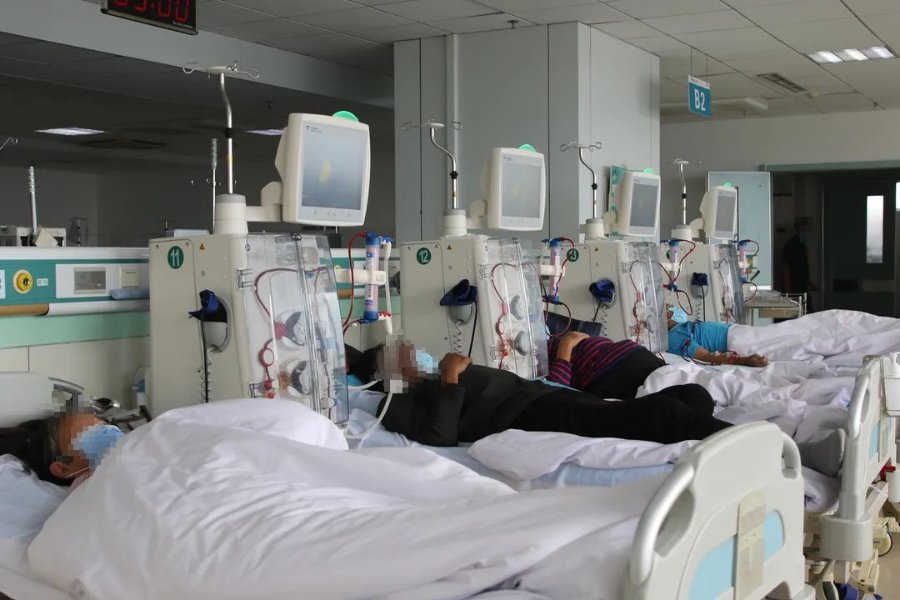
Improve the rules and regulations and standardize the work process
According to the requirements of the Ministry of Health’s “Blood Purification Standard Operating Procedures (2020 Edition)”, combined with the department According to the actual situation, the hospital’s hemodialysis room has taken a number of measures to continuously improve various rules and regulations, standardize the work process, and ensure that the work of the hemodialysis room is institutionalized, standardized and routine. At the same time, dialysis risk plans and emergency response plans were also formulated. During the new crown, emergency plans were formulated and drilled many times. Arranged department personnel to participate in national standardized management training for many times. The department has also established a complete medical and nursing quality monitoring system. The department’s quality control team has increased its self-examination, found problems and improved it in a timely manner, regularly found nursing hidden dangers and analyzed and feedback in a timely manner, so as to make all work procedures and standardization.

Strengthen safety management and improve risk awareness
During dialysis, the patient’s blood is in extracorporeal circulation, and the patient’s life is in the hands of medical care In the hands of the staff, the slightest flaw in the medical staff may cause changes in the patient’s condition. Therefore, medical safety is the top priority of the work of the hemodialysis room. During the entire dialysis process of the patient, the medical staff closely observe the patient’s condition changes, monitor the patient’s vital signs in real time, and promptly detect adverse dialysis reactions, such as abnormal machine alarms, the dosage of anticoagulants and other drugs, and bleeding at the puncture site. , and deal with it in time to ensure the safety of the patient’s life. Hemodialysis treatment is a medical care process that is highly dependent on equipment. Therefore, doing a good job of daily cleaning, disinfection and maintenance of water treatment machines and dialysis machines, and maintaining the normal and safe operation of the machines is the premise to ensure patient safety and high-quality dialysis. , The quality control team of the department regularly organizes members to monitor relevant indicators to ensure the normal operation of the machine.
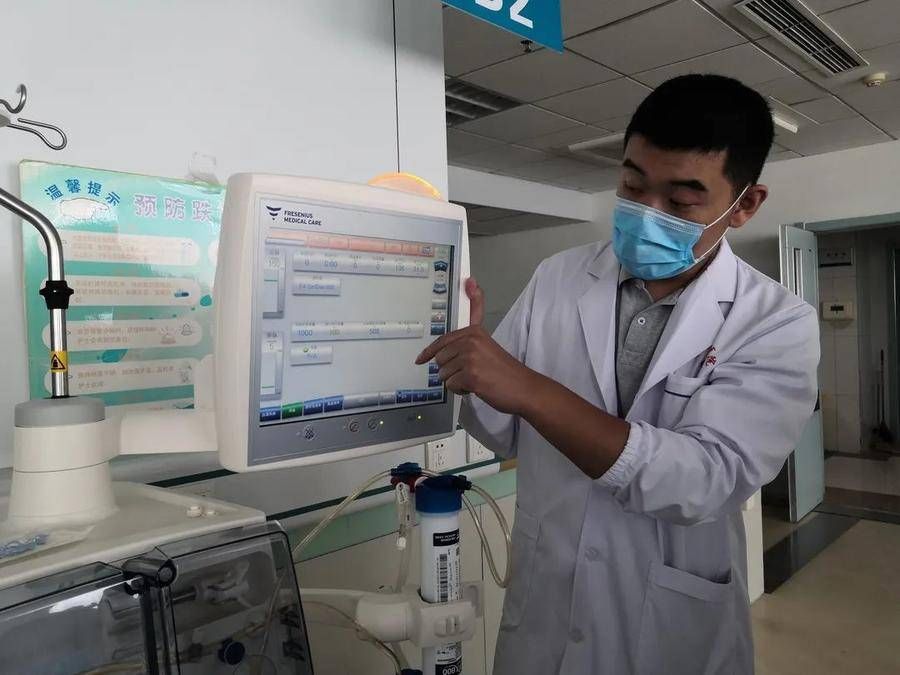
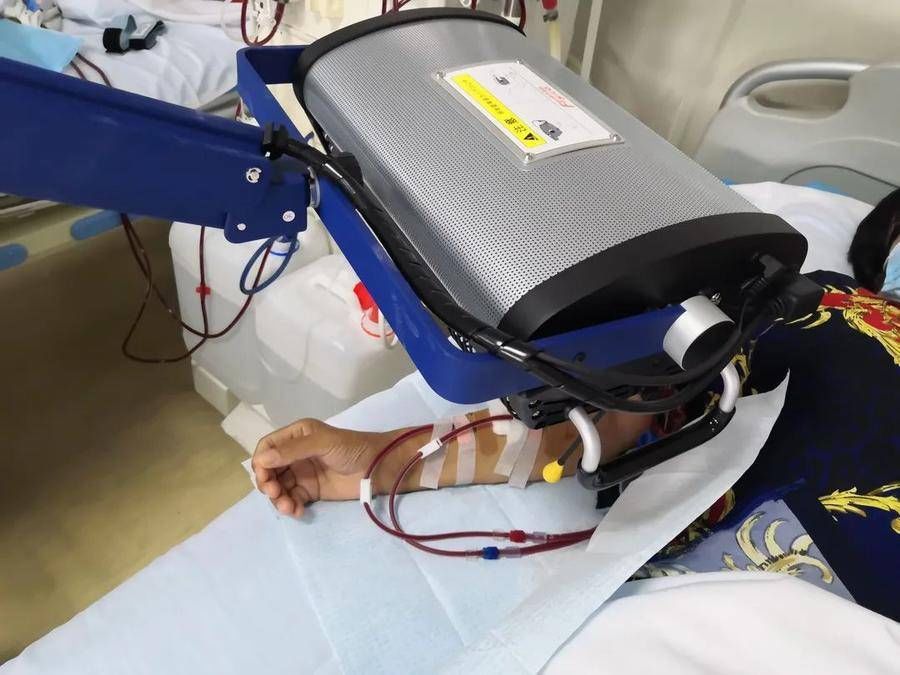
Strengthen hospital infection management and strict disinfection and isolation
The hemodialysis room is full of blood Hemodialysis patients are susceptible to blood-borne diseases, so it is very important to manage nosocomial infections well. The department took multiple measures to control the occurrence of hospital feeling. The first is to strictly implement aseptic operation, so that dialysis patients have one needle and one tube, one person, one bed, one use and one replacement, and dialysis consumables and medical waste are centrally disposed of according to regulations; the second is to maintain water treatment rooms, treatment rooms, and dialysis rooms. Clean, disinfect on time every day, and do a good job in the daily cleaning, disinfection and maintenance of water machines and dialysis machines; and in strict accordance with the blood purification infection control operation procedures, regularly test and record the dialysis water and dialysate, and the vaccination rate of kidney friends against the new crown 99.7% and no abnormal reaction; at the same time, the training of medical staff on nosocomial infection knowledge has been continuously strengthened, and medical staff are regularly organized to study the “Nosocomial Infection Management System”, “Hemodialysis Room Disinfection and Isolation System”, and “Standard Practice for Blood Purification (2020 Edition)”, Strengthen the awareness of disinfection and isolation.
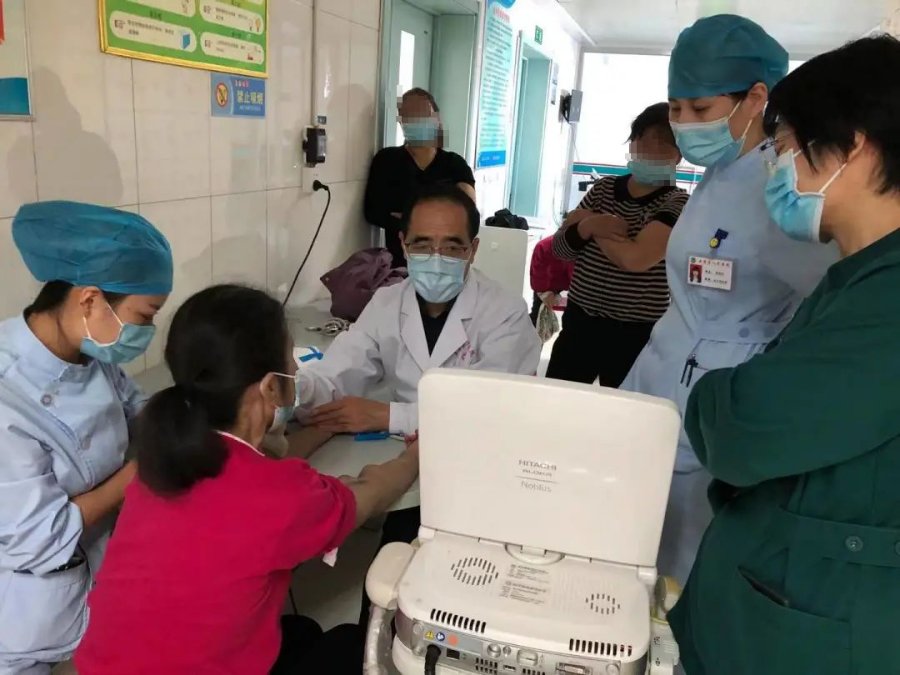
Strengthen communication and study and strive to improve professional skills
Hemodialysis is highly professional, and requires professional quality and technical requirements for medical staff high. Must have extensive knowledge of nephrology and clinical medical and nursing knowledge, good communication skills, judgment skills and keen observation and comprehensive professional skills. The doctors in the dialysis room of the hospital continue to strengthen their professional studies on the basis of their undergraduate graduation. He has been sent to the top three hospitals in and outside the province for further study, and has been assisted by famous experts from the Department of Nephrology of Qingdao University School of Medicine and the hemodialysis room of Rizhao People’s Hospital to the hospital for consultation and surgical guidance, etc., and has cooperated with many domestic and provincial top three hospitals. The hospital’s expert team maintains friendly contacts and is always at the forefront of professional development. A number of nurses have obtained the qualifications of hemodialysis specialist nurses in Shandong Province. Among them, they won the second prize in the Shandong Province Blood Purification Standard Operation Skills Competition in 2019, and won the “Jianfan Cup” Shandong Province Blood Purification One Station Knowledge Competition in 2020. other prizes. The department is the quality monitoring and management unit of hemodialysis in the province, a member unit of Shandong Southeastern Nephrology Alliance, a member unit of Shandong Southeastern Vascular Access Alliance, and one of the most comprehensive departments in the hospital.

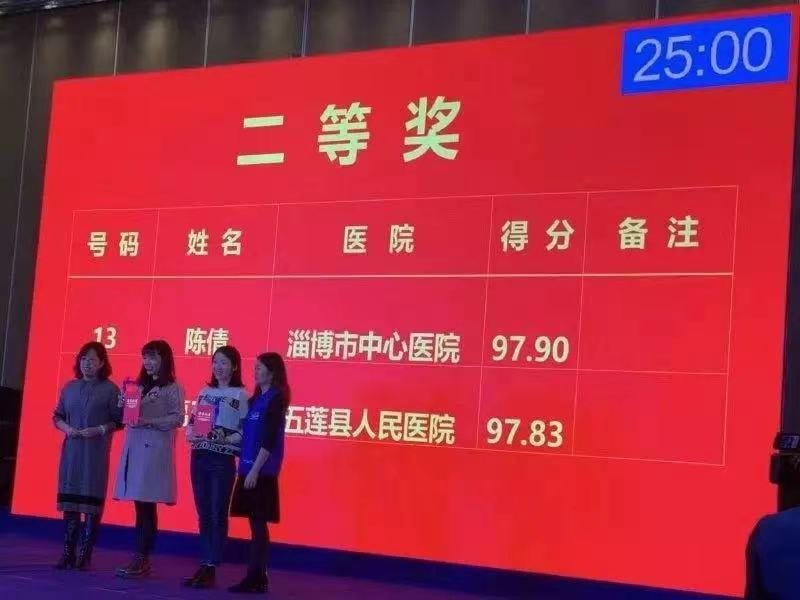
Improving the quality of dialysis and creating specialty characteristics
The quality management of hemodialysis is a matter of The quality of treatment, quality of life and survival time of patients, the “Standard Practice for Blood Purification (2020 Edition)” is the general outline of standardized and standardized management, and is also the basis for ensuring the quality and safety of medical care. Therefore, the general practitioners are regularly organized to study and set up departments The quality management team conducts regular inspections and improvements to achieve continuous quality improvement. Benchmarking the quality indicators of hemodialysis in the country and Shandong Province, the dialysis room of the hospital is in the correction of anemia in dialysis patients, blood pressure control, blood calcium and phosphorus management, and secondary Hyperparathyroidism PTH index, patient survival time, mortality rate, and other quality indicators have reached or exceeded the best level in the country.
Improve the ability to treat critically ill patients
The patients faced by hemodialysis are all critically ill patients. The department is closely relying on the comprehensive treatment capabilities of the whole hospital, actively carrying out various blood purification therapies, strengthening solidarity and cooperation with various disciplines in the hospital, and striving to improve the treatment of critically ill patients. The overall treatment ability of difficult kidney disease, multiple organ insufficiency, systemic inflammatory syndrome, severe pancreatitis, systemic immune disease, various complications of uremia and various vascular access complications.
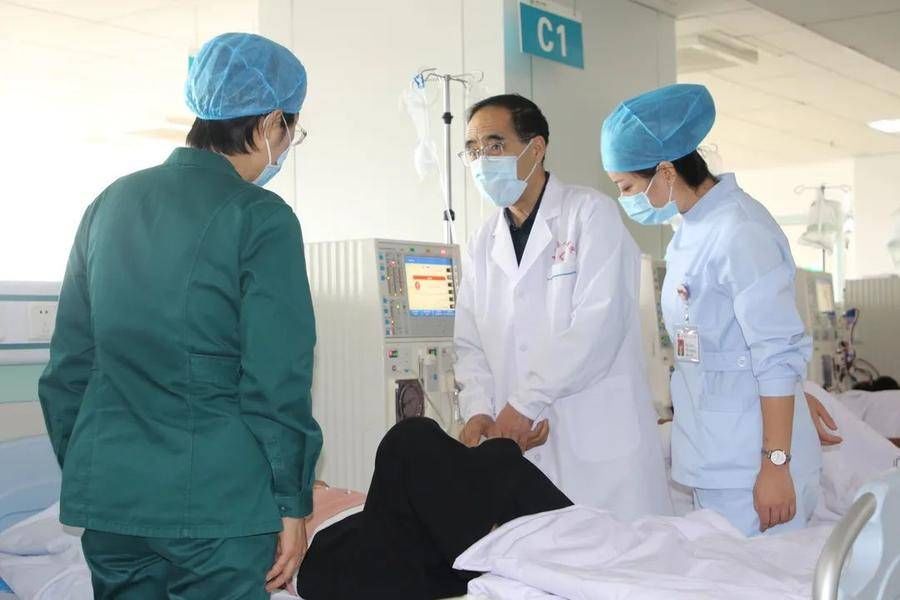
Strengthen doctor-patient communication and improve service ability
Due to the disease itself and the influence of dialysis treatment, hemodialysis patients have different degrees of electrolyte imbalance and water and sodium retention, the department has adopted targeted health education for different patients. For example, uremia patients are prone to accumulation of sodium ions and phosphorus ions, and there is a danger of high potassium and high phosphorus. Patients and medical staff have specially formulated reasonable diets to reduce the intake of potassium ions and phosphorus ions and reduce the risk of high potassium and high phosphorus. At the same time, a publicity board is also set up to post a list of high potassium and high phosphorus foods to give patients a better image, More intuitive reference. Strengthen communication with patients, ask their feelings, understand their needs, seek their opinions, and meet their actual needs. Medical staff explain the knowledge of hemodialysis treatment to patients in an easy-to-understand way, The importance of diet, control of water and sodium intake and protein intake, teach patients about self-care of arteriovenous fistula, and how to recognize related complications. Strengthen patients’ self-esteem Nursing ability, improve the quality of life, and speed up the return of uremia patients to the society.
(Wulian County People’s Hospital of Shandong Province)